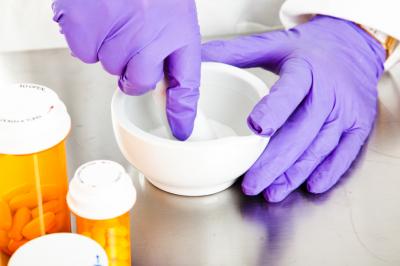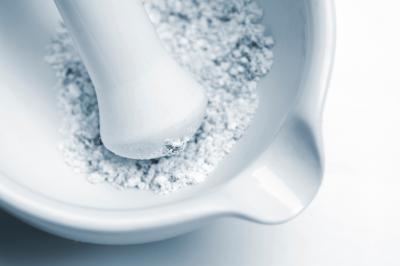May 14, 2014

May 14, 2014

Compounding is a practice in which a licensed pharmacist, a licensed physician, or, in the case of an outsourcing facility, a person under the supervision of a licensed pharmacist, combines, mixes, or alters ingredients of a drug to create a medication tailored to the needs of an individual patient.
In 2013, the passage of the Drug Quality and Security Act gave the FDA authority to regulate outsourcing facilities (non-traditional compounding pharmacies). This new law defines two types of compounding pharmacies: traditional pharmacies and outsourcing facilities. Outsourcing facilities are differentiated from traditional pharmacies by the following characteristics:
* They are engaged in the compounding of sterile drugs
* They have elected to register with the FDA as an outsourcing facility
* They may or may not obtain prescriptions for identified individual patients
Outsourcing facilities must now comply with cGMP requirements and are now subject to inspection by the FDA's Center for Drug Evaluation and Research (CDER).
Those facilities that choose to register as outsourcing facilities face significant challenges in their transition to compliance with cGMP. Three of the key issues facing outsourcing facilities are:
1.Validation in general and sterility assurance in particular: Qualification of HVAC systems, sterilizers, and hoods present challenges to these facilities that have not been required to have these qualifications in the past. The equipment may not have been designed to support GMP compliance, or, if qualification has been attempted, may not be robust enough to provide the appropriate level of documented evidence of fitness for intended use.
2. Quality Systems: Systems for receipt of materials, review of batch records, handling and storage of product both in process and finished product, label control and handling, and release of product often are not robust in terms of cGMP.
3. Documentation: Standard Operating Procedures are missing for many key activities, or if present, are not adequate to clearly provide the appropriate level of instruction for the operators.
Outsourcing facilities present some unique challenges to traditional application of the GMP regulations (e.g. small batch sizes, sometimes as few as one syringe). These challenges will require new strategies which are appropriate for the way business is conducted in this environment, and new ways of assessing "fitness for intended use". ProPharma Group is in the forefront on assisting outsourcing facilities with their transition to cGMP compliance. In subsequent blogs, these key challenges for outsourcing facilities will be reviewed in more detail, and solutions will be explored for resolving the challenges in each of these areas and successfully navigating the complexities of applying the GMP regulations to this new and non-traditional arena.
Learn more about ProPharma Group's Compliance solutions.
Contact us to get in touch with our subject matter experts for a customized Compliance presentation.

July 16, 2014
Compounding is a practice in which a licensed pharmacist, a licensed physician, or, in the case of an outsourcing facility, a person under the supervision of a licensed pharmacist, combines, mixes,...

December 4, 2014
Compounding is a practice in which a licensed pharmacist, a licensed physician, or, in the case of an outsourcingfacility, a person under the supervision of a licensed pharmacist, combines, mixes, or...